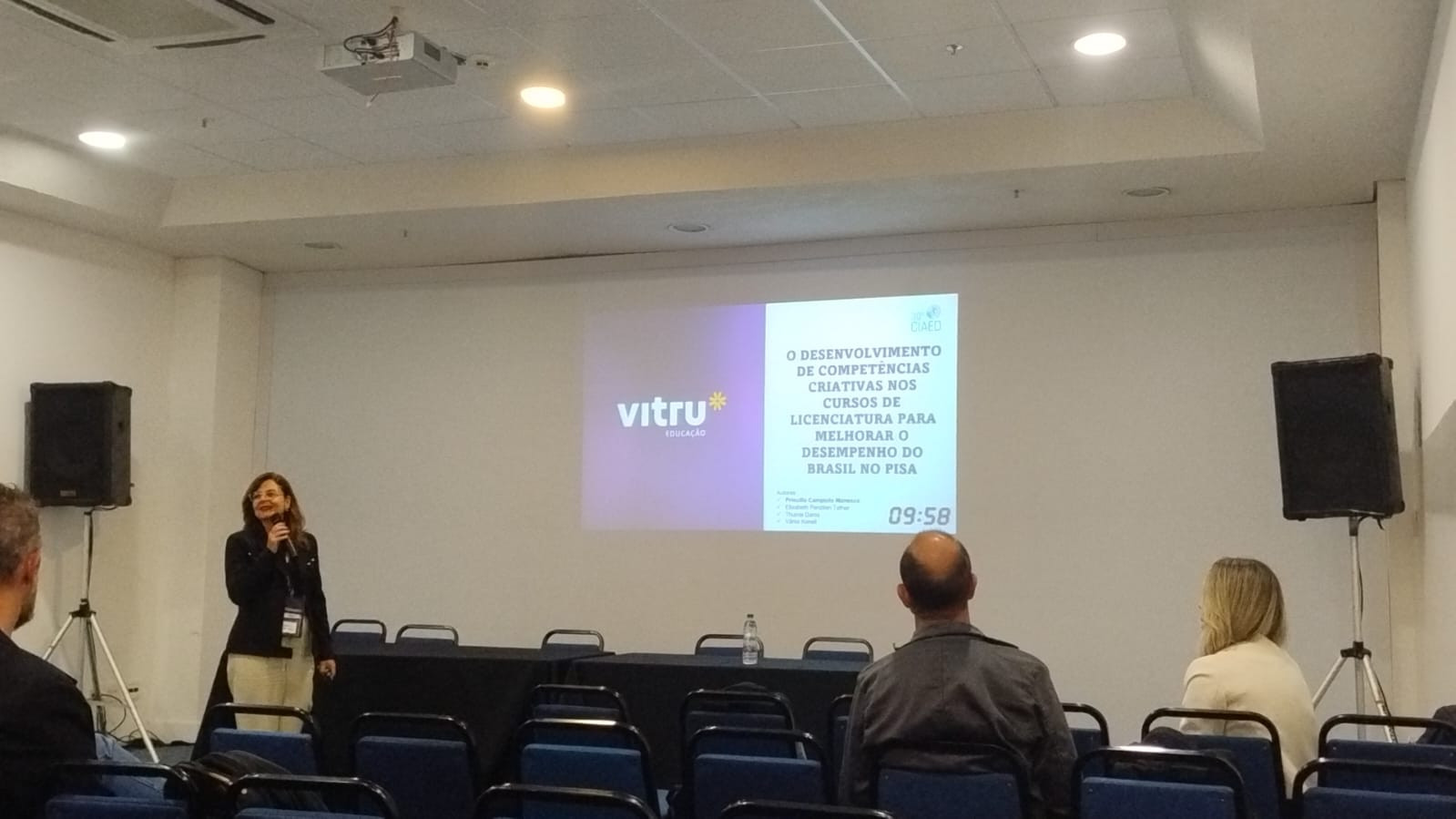
Teacher training must align with the principles of global citizenship, sustainability, and the development of 21st-century skills
Teacher education in Brazil is undergoing a profound and strategic transformation, driven by the internationalization of Higher Education and the expansion of Distance Education (DE). The 2023 Higher Education Census, recently released, confirms a trend already observed in virtual classrooms and academic debates: teacher education programs are becoming protagonists of a new educational paradigm—more connected, flexible, and above all, global.
This was the focus of the work presented by Priscilla Campiolo, Academic Quality and Innovation Coordinator at Vitru Educação, titled "Developing Creative Competencies in Teacher Education Programs to Improve Brazil’s Performance in PISA". The presentation took place during the 30th edition of the ABED International Conference on Distance Education (CIAED), held until May 10 at Viasoft Experience, the campus of Universidade Positivo in Curitiba. This year’s theme was "Internationalization of Distance Education."
According to Campiolo, this shift does not occur in isolation but reflects a convergence with international educational guidelines promoted by organizations such as OECD and UNESCO, which advocate for teacher training aligned with the principles of global citizenship, sustainability, and the development of 21st-century skills.
"By expanding access to teacher education through DE, Brazil is responding to these global calls."
The 2023 Higher Education Census reports over 1.7 million enrollments in teacher education programs in Brazil. Of these, 67.1% are concentrated in private institutions — with 90% of enrollments in Distance Education.
"These numbers highlight a significant structural shift: between 2019 and 2023, DE enrollments in teacher education programs grew by 40%, solidifying the digital model as the primary pathway for teacher training in the country," added Campiolo.
But what do these numbers truly reveal? For her, the digital environment has evolved from an emergency alternative to a legitimate and qualified space for education.
"This transition is increasingly accompanied by curricular innovations that incorporate UNESCO’s guidelines on Global Citizenship Education and Education for Sustainable Development."
The goal of these guidelines, Campiolo explains, is ambitious:
"Preparing future teachers to understand and engage with an interconnected and ever-changing world means integrating curricula with content on human rights, the environment, cultural diversity, climate change, and social inequalities. It also means fostering empathy, critical thinking, creativity, and problem-solving—skills essential for civic and professional engagement at local and global scales."
Transforming the Educational System
This new perspective on teacher education demands more than curricular updates—it requires systemic transformation. Campiolo emphasizes the need to revise teaching materials, invest in ongoing teacher training, and create inclusive learning environments that embrace diversity and innovation.
"Has proven to be fertile ground for these changes due to its scalability, adaptability, and integration of cutting-edge educational technologies".
Thus, the internationalization of teacher education, she argues, goes beyond mobility programs. "It’s about cultivating a global mindset, shaping educators who are aware of their social role and prepared to tackle challenges in an era defined by complexity, interdependence, and environmental urgency," she concluded.
This website uses cookies to offer you a better browsing experience. To continue using this website you agree with the use of cookies and with our Privacy Policy.